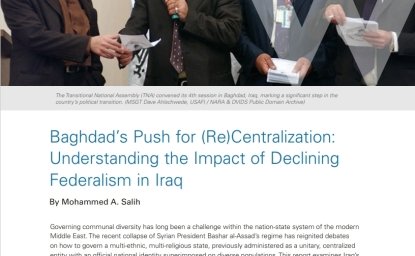Upcoming UN Meeting Revives Hopes for U.S.-Iran Dialogue


UNGA provides a convenient venue for foreign leaders to interact and has special utility for countries such as Iran that are estranged from the United States and thus have no embassies in Washington. With the election of a pragmatic new Iranian president, Hassan Rouhani, suspense is building again. Will Rouhani shake hands with U.S. President Barack Obama at the annual luncheon for heads of state? Or, at a minimum, will Iranian Foreign Minister Mohammad Javad Zarif—a U.S.-educated former ambassador to the UN—chat in the hallway with Secretary of State John Kerry?
Author
Senior Fellow, Atlantic Council's South Asia Center and Washington correspondent for Al-Monitor.com

Middle East Program
The Wilson Center’s Middle East Program serves as a crucial resource for the policymaking community and beyond, providing analyses and research that helps inform US foreign policymaking, stimulates public debate, and expands knowledge about issues in the wider Middle East and North Africa (MENA) region. Read more




